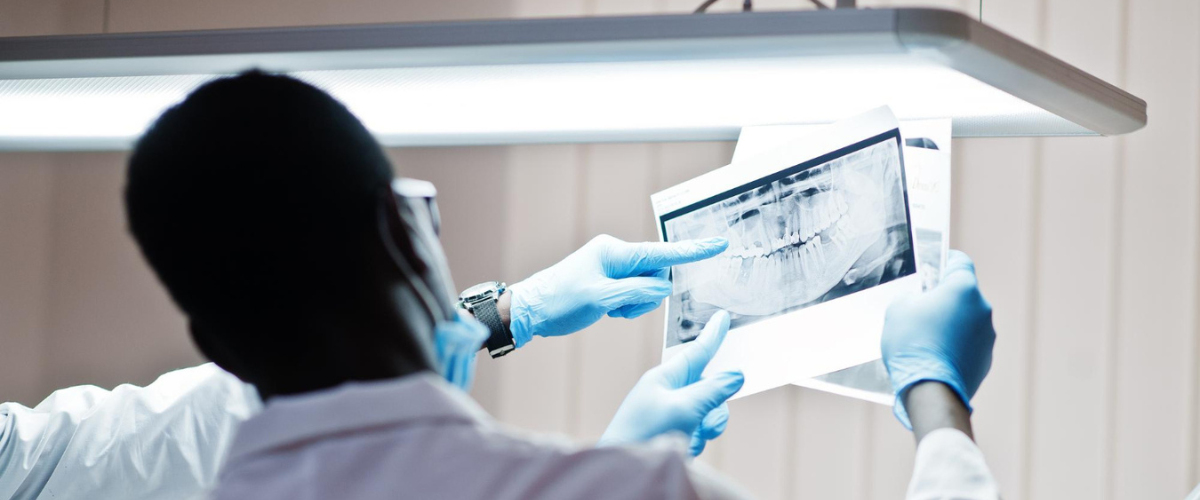
28 Oct What is Maxillofacial Surgery? (Procedure, Risks, Aftercare)
What is Maxillofacial Surgery? (Procedure, Risks, Aftercare)
By Island Hospital | October 28, 2024 12:00:00 PM
Medical Reviewer: Dr. Yew Ching Ching, Oral and Maxillofacial Surgeons
Maxillofacial surgery is a specialised form of surgery that focuses on treating conditions related to the face, jaw, and mouth.
Often performed by highly trained surgeons, this type of surgery addresses both medical and cosmetic concerns, helping patients restore function, relieve pain, and enhance their appearance.
In this article, we’ll explore what maxillofacial surgery involves, the conditions it treats, preparations, risks, benefits, and the recovery process.
What is Maxillofacial Surgery?
Maxillofacial surgery, also known as oral and maxillofacial surgery (OMS), deals with diseases, injuries, and defects in the head, neck, face, jaws, and oral cavity.
This surgical specialty combines expertise in medicine and dentistry, allowing surgeons to perform complex reconstructive procedures that can significantly improve both the function and appearance of facial structures.
What Conditions Are Treated?
Maxillofacial surgery addresses a wide variety of medical conditions, including:
- Facial Trauma: Injuries such as fractures to the jaw, cheekbones, or eye sockets, often due to accidents or sports injuries, are repaired through maxillofacial surgery.
- Jaw Misalignment: This includes conditions like overbites, underbites, or jaw asymmetry, which may affect both function and appearance. Surgery realigns the jaws to improve biting, chewing, and speaking.
- Impacted Teeth: Commonly, wisdom teeth that fail to erupt properly can become impacted. Maxillofacial surgery removes these teeth to prevent pain and infection.
- Cleft Lip and Palate: Birth defects that affect the mouth and lip can be corrected with maxillofacial surgery, improving appearance and function (like speech and feeding).
- Oral Cancer: Tumours or cancerous growths in the mouth or jaw may require surgical removal, often followed by reconstructive surgery to restore function and aesthetics.
- Temporomandibular Joint Disorders (TMJ): TMJ problems can cause jaw pain and difficulty opening or closing the mouth. Surgery may help alleviate chronic pain and improve jaw mobility.
- Infections, Cysts, and Tumours: Surgery is often needed to treat serious infections, remove cysts, or excise benign or malignant tumours in the facial or oral areas.
- Cosmetic Procedures: Maxillofacial surgery may also be done for aesthetic reasons, such as correcting facial asymmetry or enhancing features through chin, cheek, or jaw reconstruction.
Wondering if dental implants are the right choice for you? Read our article on this effective, long-term solution for missing teeth.
Preparations Before Maxillofacial Surgery
Before the surgery, several steps are taken to ensure the patient is well-prepared:
1. Medical Evaluation
A complete health assessment is conducted, which includes reviewing medical history, current medications, and any pre-existing conditions that may affect the surgery.
2. Imaging Studies
Tests such as X-rays, CBCT scans, CT scans, or MRIs may be performed to get a clear picture of the affected area. These help the surgeon plan the procedure accurately.
3. Blood Tests
Blood work is done to check overall health and ensure that the patient is fit for surgery, minimising potential risks.
4. Medication Adjustments
Certain medications, particularly blood thinners, may need to be stopped before surgery to reduce the risk of excessive bleeding.
5. Pre-Surgery Instructions
Patients are given specific instructions, such as fasting before surgery, arranging for post-surgery transportation, and preparing for recovery at home.
Procedure of Maxillofacial Surgery
Here is the general procedure for maxillofacial surgery:
1. Procedure of Maxillofacial Surgery
The surgical procedure varies based on the condition being treated. Common features of the surgery include:
2. General Anesthesia
The majority of maxillofacial surgeries are performed under general anaesthesia, meaning the patient will be asleep during the entire procedure.
3. Jaw Realignment (Orthognathic Surgery)
Involves cutting and repositioning parts of the jawbone to correct misalignment. Plates, screws, or wires may be used to hold the bones in place during healing.
4. Tumour Removal
This may involve excising both the tumour and surrounding tissues to ensure complete removal. Reconstructive surgery is often done afterward to restore appearance and function.
5. Duration
Surgery can range from 2-6 hours depending on the complexity, such as whether it involves jaw realignment, tumour removal, or facial reconstruction.
What Are the Benefits of Maxillofacial Surgery?
Key benefits include:
- Improved Functionality: For conditions like TMJ disorders or jaw misalignment, surgery can restore proper jaw function, making it easier to chew, speak, and breathe.
- Pain Relief: Chronic pain caused by conditions like facial trauma or TMJ can often be alleviated through surgery.
- Aesthetic Improvements: For patients undergoing reconstructive or cosmetic surgery, significant improvement in appearance can boost self-confidence and quality of life.
- Life-Saving: In cases like oral cancer or severe infections, maxillofacial surgery can be critical in removing harmful tissues and preventing further complications.
What Are the Most Common Risks and Complications?
While generally safe, maxillofacial surgery carries some risks:
- Swelling and Scarring: Swelling is common after surgery, and scarring may occur, although surgeons often work to minimise visible scars.
- Infection: Post-surgical infections are a potential risk, but they can be managed with antibiotics and proper care.
- Excessive Bleeding: Some patients may experience more bleeding than expected, particularly if they have been taking blood-thinning medications.
- Nerve Damage: Nerve injury during surgery can lead to numbness or altered sensation in the face or mouth, which may be temporary or permanent in rare cases.
- Anaesthesia-Related Complications: Although rare, complications from general anaesthesia, such as allergic reactions or respiratory issues, may occur.
Post-Procedure Aftercare
Proper aftercare is crucial for a successful recovery:
- Medications: Pain relief and antibiotics are commonly prescribed to manage discomfort and prevent infection.
- Cold Compresses: Applying cold compresses can help reduce swelling and bruising during the first few days.
- Dietary Changes: A soft or liquid diet is recommended for the first few weeks to avoid straining the surgical area.
- Follow-Up Appointments: Regular check-ups with the surgeon help monitor healing progress and address any complications early.
Want to expand your knowledge on good oral hygiene? This article on teeth scaling has all the details you need!
Recovery Timeline
The recovery timeline depends on the type of surgery:
| First Week | Patients typically experience significant swelling and discomfort. Rest is crucial during this period. |
| Second Week | Swelling begins to subside, and patients can gradually resume normal activities, although strenuous physical activity should still be avoided. |
| Full Recovery | It can take several weeks to a few months for a complete recovery, depending on the surgery's complexity. Patients should adhere to all post-surgery instructions for optimal healing. |
Find Pain Relief With Maxillofacial Surgery
If you’re dealing with jaw pain, facial trauma, or any oral or facial condition, Island Hospital’s expert maxillofacial surgeons are here to help.
Our state-of-the-art facilities and personalised care ensure you’ll receive the highest standard of treatment, from consultation to recovery.
Why Choose Island Hospital?
- Highly skilled and experienced maxillofacial surgeons
- Comprehensive pre- and post-surgery care
- Cutting-edge surgical techniques and equipment
- Comfortable, patient-centred approach
Don’t let discomfort or uncertainty hold you back—take the first step toward relief and restore confidence today.
Book your consultation with Island Hospital now and explore your treatment options with our dedicated team of professionals.
FAQ
How long is the typical recovery period?
The typical recovery period ranges from several weeks to a few months, depending on the type and complexity of the surgery.
What is the difference between oral and maxillofacial surgery?
Oral surgery focuses on procedures within the mouth, such as tooth extractions, while maxillofacial surgery covers more extensive operations involving the face, jaw, and neck.
Will I have scarring after surgery?
Scarring is possible but is usually minimal. Surgeons often use advanced techniques to ensure that any scars are discreet and heal well over time.
What type of anaesthesia is used?
Maxillofacial surgery is typically performed under general anaesthesia, meaning the patient will be asleep throughout the procedure.
Can I sleep during surgery?
Yes, under general anaesthesia, you will be asleep and unaware of the procedure until you wake up in recovery.
Related Doctors
| Derived from | Complications |
|---|






